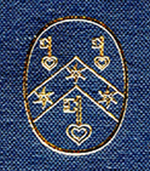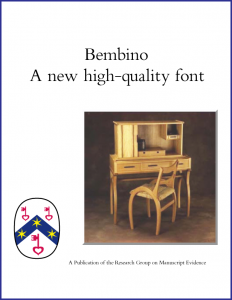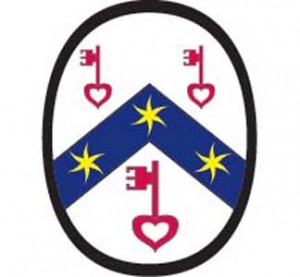Principles and Practices
The Research Group on Manuscript Evidence exists to apply an integrated, comprehensive approach to manuscripts and texts in other forms through the ages. Our work began on medieval Western European manuscripts and early modern printed books in specific collections, but, over the years, our research work and our mission have expanded to embrace a wider body of written (and other) sources, from the Antique world to the present.
Manuscripts and Other Evidence
The Research Group considers these and many related materials simultaneously as carriers of text, archaeological artefacts, works of art, layers of history, and monuments of culture. The Group seeks to examine, record, and analyze the evidence of these witnesses of history, life, thought, art, and culture, and to set their testimony in context. It also works to educate others in its methods and its results. It offers a concerted, informed response to the complex challenges of preserving, transmitting, and understanding the legacy of the past. By such means we seek better to understand the present and to help prepare for the future, above all a future worth having.
Our approach has always been inclusive, rather than exclusive. We welcome scholars, both established and developing, as well as independent scholars, experts, students, and amateurs in many areas of interest in the academic and wider worlds. This company is manifested in our Officers, Associates & Volunteers and in our welcome for newcomers.
Our interests embrace many materials and fields of study, ranging from book culture, book history, library history, art history, palaeography, textual transmission, and linguistics, to archival studies, conservation, archaeology, and forensics.
Although our individual experiences and forms of expertise perforce differ (for example through the pre-determined conditions of birth order), we believe that we all might be equal in the quest for truth, and so we might all, hopefully, benefit from fostering constructive discourse and feedback across disciplines, regions, and generations, with the aim of strengthening and refining knowledge overall.

‘Through & Through’ (Budny Handlist 12). Using a template for the design on both front and back of the leaf. Call it Double Vision.
Welcome
We invite you to join our activities, and become a Sponsor or Donor of our work and mission. Contributions and Donations — both in funds and in kind — enable our activities to continue.
The Research Group is a recognized Section 501(c)(3) nonprofit educational organization, in the form of a corporation. It is devoted to “lectures, discussions, and other forms of publications”. Donations to its mission may thus be tax-deductible.
Importantly, the Group continues its activities and most of its managerial obligations as a nonprofit educational corporation only through voluntary contributions, by which no Officer receives a salary. Moreover, so far, there is only a slender endowment. The donations in time, expertise, and materials ensure that the overheads for the organization are kept to an exemplary minimum.
This principle and practice means that your donations — in funds and in kind — can help to sustain, to a great extent, the activities for which our organization is dedicated. In this respect, too, the organization is exceptional (not unique) among nonprofit educational enterprises.
Highlights
The 1-page Agendas for our Open Business Meetings describe current and long-term activities, plans, and aspirations. They are available for your inspection and perusal (in the Archive, so that you can see our progress and achievements) and for the current year:
In 2014 the Group celebrated its 15th anniversary as a nonprofit educational corporation based in Princeton, New Jersey, and its 25th as an international scholarly organization founded in the United Kingdom as part of a collaborative research project on Anglo-Saxon and related manuscripts and their context. We celebrated in style, as we happily record.
In 2019 the Group celebrated its 20th/30th anniversaries with multiple activities, including an Anniversary Symposium (“The Roads Taken, or, The Obstacle Course”). For it, we published an illustrated 2019 Symposium Booklet, in the expanding series of these Booklets. All our Booklets are freely available for download on this site. See our Publications.
Over the years, the interests and activities of the Group have expanded to address many forms of manuscript and other evidence across the centuries. Our activities and this website illustrate these interests.
Please explore the items on our Menu to learn about our history, origins, and aims; our officers, organization, associates, and volunteers; and our activities, which include meetings, photographic exhibitions, research projects, and publications. Our conference sessions, both sponsored and co-sponsored, usually occur at the Annual International Congress on Medieval Studies at Kalamazoo, Michigan, and sometimes elsewhere. Our meetings in many centers take the form of lectures, master classes, symposia, colloquia, seminars, workshops, and conference activities.
Publications
Our Publications include this website, catalogues, books, booklets, posters, and other materials. Among them are:
- our illustrated Bulletin ShelfLife:
A Meeting Place for Scholars, Collectors & Connoisseurs of Manuscripts, Books & the Written Word - our illustrated RGME-newsletter ShelfMarks
- our Activities at the annual International Congress on Medieval Studies each May
- our other Events
- our Style Manifesto
- Posters for our scholarly activities, now exhibited in a Gallery on this site to show the evolution of their designs
- our series of blogposts on Manuscript Studies, devoted to manuscripts, documents, and other written materials,
with a Contents List
 The largest co-publication so far is the Illustrated Catalogue of
The largest co-publication so far is the Illustrated Catalogue of
Insular, Anglo-Saxon, and Early Anglo-Norman Manuscript Art at Corpus Christi College, Cambridge (1997) in 2 volumes. (Available here.)
Our blogposts not only record the scholarly activities and other events, including the conference sessions, receptions, and other celebrations, but also publish illustrated reports of discoveries regarding manuscript and related materials, as with here and here. The Contents List for the blog on Manuscript Studies gives updates.
 Likewise, our copyright high-quality digital font, Bembino, is suitable for multiple languages. A donation to the Research Group, it is freely available for use. You can see the font in action on this very website and download it FOR FREE here: Bembino. We welcome requests for corrections and additions.
Likewise, our copyright high-quality digital font, Bembino, is suitable for multiple languages. A donation to the Research Group, it is freely available for use. You can see the font in action on this very website and download it FOR FREE here: Bembino. We welcome requests for corrections and additions.
This site provides information on how to contact us and how to join our Mission, and become a Sponsor, Donor, or Volunteer of the RGME.
The posts and pages on our site document and illustrate our history, activities, aims, and celebrations.
*****
Suggestion Box
Please send your suggestions, corrections, and improvements. You could:
- Leave your comments or questions below
- Contact Us
- Sign up for our Newsletter and information about our activities.
Send a note to director@manuscriptevidence.org or RGMEevents@gmail.com
Visit our Social Media:
- our FaceBook Page
- our Facebook Group
- our Twitter Feed (@rgme_mss)
- our Bluesky nest @rgmesocial.bluesky.social)
- our LinkedIn Group
Keep up with:
- our Blog on Manuscript Studies (see its growing Contents List)
- our Newsletter ShelfMarks
Join our Activities!
Join:
- the Friends of the RGME. Our nonprofit educational organization does not have “Members” as such (instead, we have Officers, Associates, and Volunteers), but we cordially invite you to become a member of the Friends.
Contribute to our Mission:
Donations and Contributions, in funds or in kind, are welcome and easy to give. Given our low overheads, your donations have direct impact on our work and the furtherance of our mission. For our Section 501(c)(3) nonprofit educational organization, your donations may be tax-deductible to the fullest extent permitted by law.
- Contributions and Donations (in funds and in kind)
- 2024 Anniversary Appeal
Thank you for your support!
We look forward to welcoming you at our events!

*****

